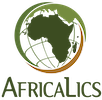By Justina A. Onumah
The AfricaLics PhD Visiting Fellowship Programme is a great platform that exposes African PhD scholars to the dynamics and perspectives of European academics and practices in innovation and development. The Programme is well structured to balance the life of a PhD scholar, practicing the old slogan of the GLOBELICS community of “working hard and having fun”. The working hard part of the visiting programme takes the big part of the slogan for the PhD scholars but the fun part compensates the stress from the workings. Some activities are planned to expose the African scholars to some firm level innovations and development practices in Denmark and one of such was a planned visit to an organic farm in the Denmark area of Nordylland, Pandrup, which is about 40km from Aalborg University.
Brief farm history
The Vester Hedegaard organic farm is a family farm of more than 250 years that passes on from generation to generation (fathers to sons) since 1763. Anders Hedegaard, the son to Kirsten and Mogens Hedegaard, is the 7th generation in a straight line of men on the farm and currently handling the farm with the help of his girlfriend, Louise Hansen who now forms part of the family. The family values history and the farm cannot be talked about without mention of this generational heritage.

From left: Kristen Hedegaard (Mother), Louise Hansen (Girlfriend), Anders Hedegaard (Son), Justina Onumah (PhD Fellow, Ghana), Jan Ingemann (Professor, AAU), Vincent Flifli (PhD Fellow, Benin) and Emmanuel Ogunjemilua (PhD Fellow, Nigeria). The photographer was Mogens Hedegaard, the Father
The farm structure, innovation and value chain activities
The farm has a total of 60 hectares of land of which 20 hectares are woodlot, 3 hectares are aronia plantations, and 17 hectares are used for growing crops, which are mainly grains and cereals, including Oats, wheat, barley, spelt, emmer, einkorn and rye. There are about 30 different varieties of the grains being produced of which about 10 are further processed and the rest used for experimental purposes. The size of the farm under the Danish farming system is classified as small scale commercial farm (surprised right?). It is important to also note that such an organically run farm constitute a small portion of the Danish agricultural system since most farms are considerably larger and not run under organic system. According to Anders, the average farm size in Denmark is about 74hectares and this is a wide departure from Africa where the average farm size of a smallholder farm is 2hectares.
There is a local innovation system that the farm operates where production and post production activities are done on the farm. As indicated earlier, part of the farm plots is reserved for experimental purposes of which they conduct different breeding experiments and come up with their local varieties. The production of the grains is done under a mechanized system and manual labour is used when needed and it is interesting to note that that size of grains field were only handled by 2 people. This quickly brought up the argument of technology disruption where innovation is said to have a counter effect on employment as it displaces a good part of the labour force on the farm. Coming face-to-face with such reality made us understand that the innovation-employment pathway could differ per geographic location and the nature of the farming system being practiced. For instance, in Africa, though smallholders adopt innovations, the innovations are usually not the heavily mechanized forms which could have a potential downward impact on on-farm employment as visible within Danish agriculture.
Both primary and secondary processing are equally handled by the farm family as they had a simple milling unit that processed the grains into organic wholesome flour for the supermarkets in and around the area of Pandrup. The packaging and marketing were done by the farm family as well. The family also consume what they produce on the farm, reserves some of the seeds for the next season’s planting and equally sought for seeds from the organic farmer association they belonged to. One could appreciate that this aspect is similar to that practiced by smallholder farmers in Africa. This implies that there could be some major differences among practices, but some characteristics of the smallholder would remain the same irrespective of geographic location and nature of the farming system.

The simple stone mill processing unit
The woodlot also serves as a source of income for the farm family through the sale of wood and processed logs for construction activities and the process was equally handled by the 2-member labour force on the farm. As Anders puts it, “people spend money to go to the gym to keep fit, but I work on the farm and I don’t have to pay anything and that is my source of fitness”. One can clearly see that they had passion for what they do and they are willing to make a sustainable income and livelihood out of it for their generations to also inherit in the years to come.

The key lesson from the trip was how family farms no matter how small the labour force is can promote food and income security through the adoption and practice of innovation along the agricultural value chain and the promotion of mechanized agriculture.
After the visit to the farm, Prof Ingemann drove us to the famous beach in the North area of Denmark and we enjoyed the chilled breeze since temperature was -2oC. The trip was worth it as it took us away from the usual learning under an academic setting to a more open and practical environment where we could learn and have fun at the same time.

Our appreciation goes to Prof Jan Holm Ingemann for organising the trip and driving us to the fields and back, with the support of Dr. Margrethe Holm Andersen, Susanna Bartram and our “buddy”, Shagufta Haneef.
